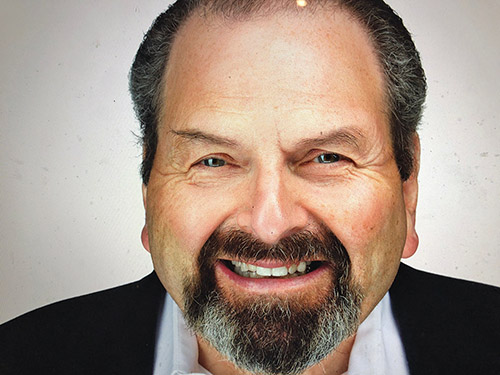
Professor Michael Stone remembers his years at City College of New York, when he and a group of Orthodox Jewish students would meet on campus to socialize after class, and then quickly head to RJJ (Rabbi Jacob Joseph) Yeshiva on the Lower East Side to be on time for shiur.
“That rush to class and shiur, back and forth, always stuck with me.”
Stone went on to receive a scholarship to the Wharton School of the University of Pennsylvania where he completed his master’s in business administration degree. “It was an excellent experience because there was mentoring from highly skilled professionals,” Stone said, “but I was one of the few Orthodox guys in the program at the time.”
While he achieved his academic goals, something was lacking. In the myriad existing MBA programs, Orthodox Jewish students often miss out when opportunities are only offered on Shabbat or during Jewish holidays. This is a common issue for the demographic, and Stone is ready to fix it.
Stone, of Teaneck, has created an MBA cohort for yeshiva graduates, slated to begin in January 2021. The first MBA program of its kind, intended to fit in with an Orthodox Jewish lifestyle, will be offered through Long Island University Hudson Graduate Centers. It is a theoretical, skill-based and applied two-year program offered at a competitively affordable price.
“There is a large population in the Yeshiva community in need of parnassah,” Stone said.
Many are groomed to study in yeshiva, start a family, and perhaps join family businesses. But this can only take them so far. Without the educational background or skills to either start or further their careers, it catches up. Eventually, conflicts with yeshiva study arise if students decide to enroll in a master’s program.
Stone aims to recruit 15 ambitious yeshiva students who want to start a business, manage a family business or work for a large organization. Students will exit the program as “much more knowledgeable, and have the skills to either open up or own their own businesses within three to four years.”
Initially, the plan was for students to convene on campus once a week and connect once a month for a mentoring session. Due to the COVID pandemic, however, Stone adapted the program, making it fully remote. Students have access to asynchronous (pre-taped) lectures that they can attend at their leisure. “This flexible schedule is conducive if you have a shiur to attend or if you have a family at home,” he said.
While asynchronous learning is convenient for individual learners, it does not allow for a sense of community, the core of what a cohort is meant to be. To achieve this, Stone will have students meet monthly on Sundays for a synchronous (live) virtual lecture and mentoring session.
Progressing through the MBA with this cohort will draw from skills garnered in yeshiva. For example, preparing and giving a drasha correlates to leading a presentation. Coming from Gemara- and Tanach-infused backgrounds, prospective students will bring Chevruta-style learning to the table, Stone believes, and “they’ll go through the program pretty smoothly together.”
Stone is no stranger to developing successful university programs designed for yeshiva students. He has contributed to business courses in the yeshiva and seminary program through Fairleigh Dickinson University in Teaneck, where he serves as an adjunct professor.
Teaching there, he noticed a major issue: “The problem was that these yeshiva students just could not write well.” Unfortunately, there had been educational gaps along the way, but Stone maintains that one must be proficient in effective writing in order to be successful. To that end, he added a writing component to his courses.
Building on this success, he transferred the concept to the LIU Hudson MBA cohort program. Academic acumen paired with practicality is crucial to Stone’s educational mission. The pool of “top-notch” professors includes MBAs and/or PhDs, as well as specific professional certifications. They are also all practitioners in their respective fields. “The big debate in education today,” Stone observed, “is that universities are competing with schools that just teach competencies.” The way to address this is to have skill-level faculty teaching. Students in the program focus on theory and application while also receiving practical marketplace training.
Upon completing the first year, students are granted a certificate and dean’s letter of accomplishment. The “capstone”—final three credits—serves as the culminating activity of the second year. Students focus on an area of interest and will be prepared to go to interviews with this expertise added to their professional arsenal.
The LIU Hudson MBA cohort is currently geared towards men, but Stone knows that “all it takes is one class, and we can hopefully open this up for yeshiva seminary women who want to take this route.”
Stone is dedicated to education and serving the community. He believes that learning and success are lifelong ventures, and that “in order to succeed, you must have a growth mindset—you must be willing to let yourself fail in order to learn.” With a background “steeped in business,” including 17 years as CEO of an investment bank, serving as chair of the New York University finance department and starting a few businesses, Stone lives these beliefs daily. Above all, he said, “You have to have hana’ah and ahava—you have to enjoy what you do, and you have to love it.”
Should you wish to contact Professor Stone, he can be reached at (914) 831-2711 or [email protected].










